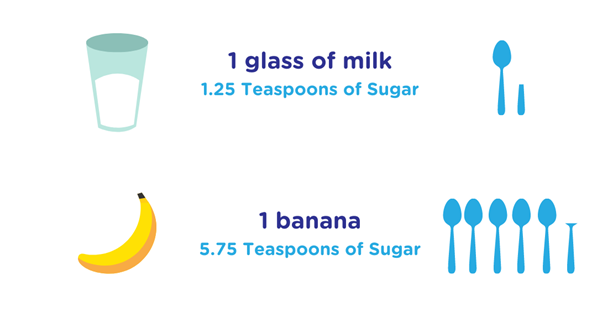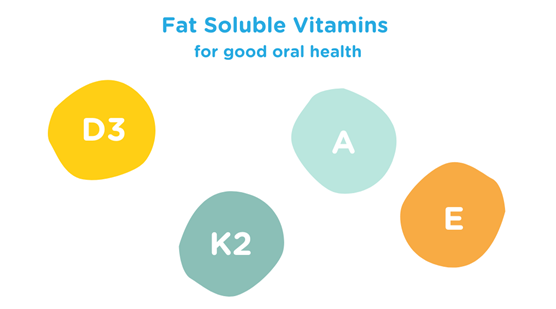2 early health warnings your teeth are giving you

Weak Immunity and Heart Disease
What your teeth can tell you, and how to look for it
The state of affairs in your mouth can be an excellent early indicator for risk of heart disease and low immunity. Find out how your mouth can give you forewarning that you're at risk.
Unfortunately, the significance of some of these markers is becoming less recognised as gum disease and tooth decay have become considered a "normal" part of life. Things like needing a filling or orthodontic alignment are considered regular nowadays. In fact, 53% of Kiwis over the age of 15 have a tooth removed due to tooth decay, infection or gum disease during their lifetime.

Source: Ministry of Health NZ, 2018-19 NZ Health Survey
We have become used to tooth decay and gum disease; a part of everyday life. Something to be expected.
But here's the thing...
Poor oral health is not something we should expect to have to live with
Human fossil records from over 7,500 years ago show that gum disease was barely a concern for our hunter-gatherer forebears (Adler, 2013). The diversity of their diet before the agricultural revolution was so diverse, that the spectrum of nutrients they consumed AND bacteria they were exposed to, made for much healthier teeth. Long story short, oral gum disease, tooth decay and crooked teeth have only become prominent in humans since we started farming, and have accelerated since the industrial revolution. We didn't always suffer with them.
Tooth decay is a chronic disease process, just like heart disease
While heart disease is much more known and feared, heart disease, tooth decay and sustained gum disease are classed as chronic illnesses - defined by the Encyclopedia Britannica as a disease process that often begins very gradually and then persists over a long period.
Why is this important?
Chronic diseases are not communicable - you don’t catch them from other people like you would a cold. Rather they either stem from within your own body or start with the transmission of something (like bacteria) that makes it possible for the disease to take root. In the case of gum disease, the bacteria that lay the foundations for gum disease can be transmitted from person to person, but a healthy body should be able to kill them off quite easily. If a healthy person is exposed to these bacteria, their body will be able to fight them off, their risk of suffering gum disease will be low and if any symptoms occur, they will be acute (short-lived in regular terms). On the other hand, an unhealthy body and poor dental habits often cannot overcome these bacteria and an acute (short term) problem, can develop into a chronic (long term) one.
What does this actually mean?
Your overall health, in particular your immunity, is directly tied to how well your body prepared is to fight chronic diseases. Problems like bleeding gums, or regularly dental cavities can be a direct marker for how well your body is able to combat chronic diseases. If you are not beating disease in your mouth, it's likely that you are not beating it elsewhere...
So here are some of the things you can look out for in your mouth, that will give you an idea of what else might be going on in your body.
Gum disease, Tooth decay & low immunity
Sustained gum disease or tooth decay are signs that your body is not getting what it needs in order to run smoothly. Oral health habits, smoking and DIET are the most significant contributing factors to gum disease. Let’s not go into smoking or teeth cleaning habits here (other than saying don't smoke, brush your teeth twice a day, floss, and visit the Dentists regularly).
Instead, let's look at diet.
First and foremost, let's establish one thing. Your brain loves sugar - it is quite literally powered by glucose. Your brain might be just 2% of your body weight, but in healthy adults, it consumes roughly 20% of the energy our bodies derive from glucose (Mergenthaler 2013). But the thing is, your body only needs SO much of it, and often we don't realise how much sugar is actually in the food we consume.
- 100 grams of milk contains 5 grams, or 1 and quarter teaspoons of sugar.
- A serving of toasted muesli contains 14 grams of sugar, or 3.5 teaspoons of sugar.
- A Banana contains roughly 23 grams of sugar, or 5.75 teaspoons of sugar.

These foods would make for a perfectly healthy breakfast and mid-morning snack But the point here is that you need to understand what you're actually putting into your body. If you add a couple of biscuits and a glass of juice into this mix, the amount of sugar you are consuming, if you ate it on a teaspoon from the packet, would scare you.
The most important thing is to be conscious about how much glucose you consume. You NEED it - but not in excess. Your body only converts as much as it needs into energy, the rest it converts into visceral fat that builds up around your organs and body. Instead of loading up on glucose-rich, simple and nutrient-poor carbohydrates, there are plenty of other sources of energy that contain more nutrients and vitamins that power your body AND support your immunity.
How does it relate to your teeth?
The other part of your body that LOVES glucose, are the bacteria in your mouth. Some are good, some are emphatically not, but a chocolate bar, sugary drink or slice of white bread is like Christmas-come-early for these bacteria. If you are suffering with gum disease or tooth decay, the bad bacteria in your mouth are winning and your immunity level is not sufficient to overcome them. If your mouth can’t handle things, it is very likely that the rest of your body can’t either.
You can view sustained gum disease and tooth decay as an early warning sign that your body is nutritionally out of kilter, and that your immunity is suffering as a result.
Tartar build-up, vitamin deficiency & heart disease
Tartar is the hard, discoloured stuff that can build up on your teeth. It's an accumulation of plaque and minerals (like calcium) from your saliva, that harden and coat your teeth.
Tartar can also be directly connected to low levels of certain key vitamins in your body.
The importance of calcium for healthy teeth is drilled into us from an early age and, let's be clear, calcium IS a key component of strong & healthy teeth. But your body can only absorb and direct calcium into strengthening your teeth and your bones if it has the vitamins needed to absorb and transport it, specifically fat-soluble vitamins D3, K2, A and E.

Without enough of these fat-soluble vitamins to help absorb and direct calcium to where it is actually needed, guess what your body does with it? It doesn't get absorbed. It ends up accumulating in place that causes problems. It becomes tartar on your teeth, and plaque in your arteries and arteriosclerosis. Yep, this is the stuff that causes heart attacks and strokes.
Tartar building up on your teeth is a sign that your body is lacking in vitamins D3, K2, A & E, is not able to correctly absorb and use minerals like calcium, and is at risk of quite serious illness further down the track.
Keep your eyes on your mouth
Whilst there are many factors that contribute to oral health and general health these key markers, persistent gum disease/tooth decay and tartar send a clear sign that something is out of kilter.
To check if you have any of these symptoms, book a visit to the Dentists for a check-up. We'll have a chat, give you all the info, and help you start the path to a happier, healthier life.






